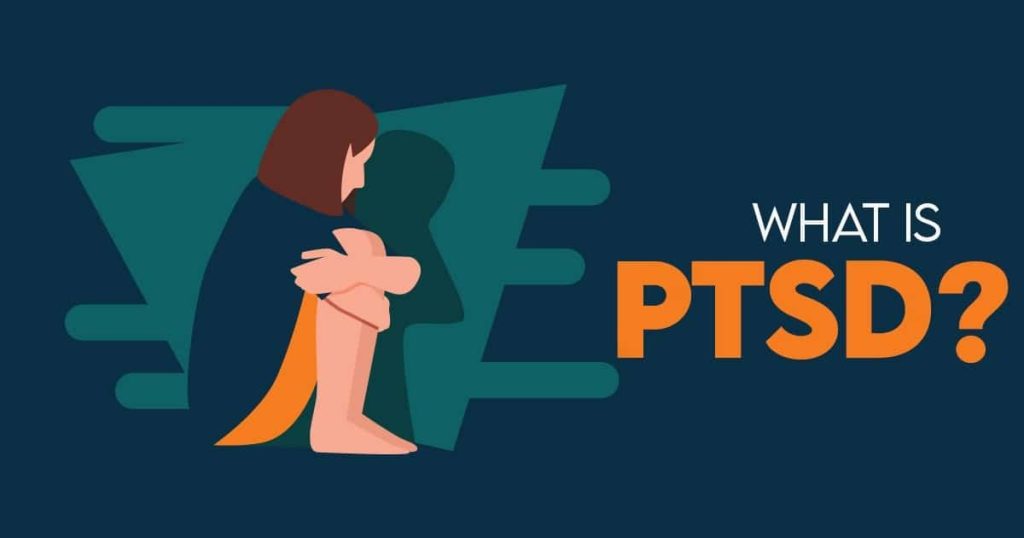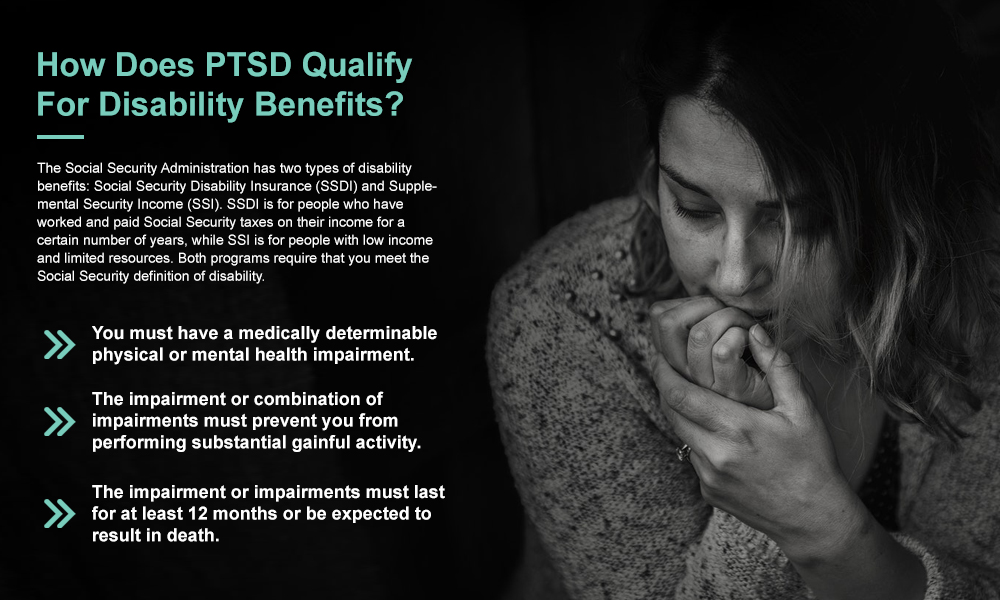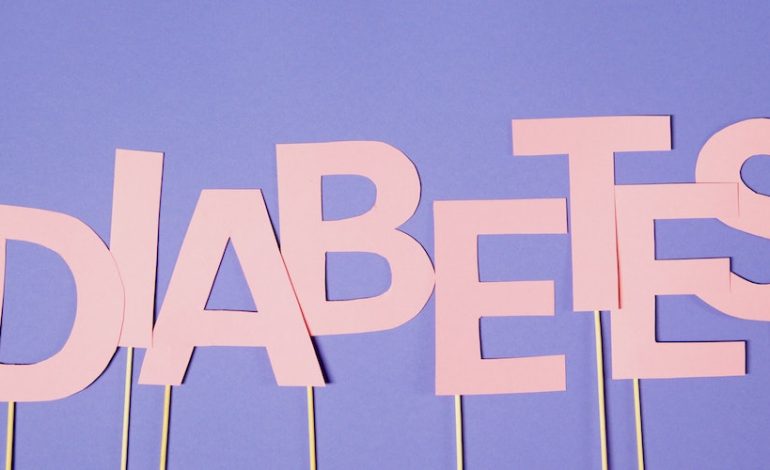Is PTSD A Disability? Does PTSD Qualify For Disability Benefits?
Although it has been long associated with the effects of war and combat, post-traumatic stress disorder can affect anyone. Medical professionals now understand that PTSD is not limited to battlefield encounters. Anyone experiencing or witnessing a traumatic event may develop symptoms associated with PTSD.
Depending on the severity of the symptoms, PTSD can interfere with a person’s ability to function on a daily basis and diminish their quality of life. Some people with PTSD may be unable to work and earn a living.
If you have been diagnosed with PTSD that prevents you from doing normal work activities, you may ask yourself: Is PTSD a disability? It’s a question the disability lawyers at the Clauson Law Firm hear quite often, so this article answers it along with explaining someone with PTSD may qualify for disability benefits.

What Is PTSD, And Is It A Disability?
PTSD may develop after experiencing or witnessing a traumatic event, such as war, violent conduct, abuse, or a disaster. For example, the occupants of a motor vehicle involved in a serious accident may develop PTSD symptoms because of the experience.
Symptoms may differ in type and severity, but some of the common symptoms of PTSD include:
- Reliving the traumatic event through flashbacks, nightmares, or intrusive memories.
- Avoiding trauma reminders, such as people, places, or situations.
- Feeling constantly on edge, alert, or easily startled.
- Negative thoughts and emotions, including guilt, shame, anger, or fear.
- Having difficulty sleeping, concentrating, or remembering things.
- Losing interest in activities that used to be enjoyable.
- Feeling detached from others or having trouble trusting them.
Anyone exposed to a traumatic event may develop PTSD, but that does not mean that everyone experiencing the same event will develop PTSD. Some people may be more vulnerable to developing the disorder through genetics, personality, coping skills, or other factors. Its severity and symptoms can differ from one person to another and may occur in combination with other mental health conditions, including anxiety, depression, and substance abuse.
If you have PTSD and it prevents you from working or performing other everyday activities, you may qualify for disability benefits. The answer depends on several factors, such as the severity of your symptoms, whether the symptoms affect your ability to perform routine daily activities and the strength of the medical evidence you have to support the claim for disability benefits.
How Does PTSD Qualify For Disability Benefits?
The Social Security Administration has two types of disability benefits: Social Security Disability Insurance (SSDI) and Supplemental Security Income (SSI). SSDI is for people who have worked and paid Social Security taxes on their income for a certain number of years, while SSI is for people with low income and limited resources. Both programs require that you meet the Social Security definition of disability.

To be disabled according to federal regulations that Social Security must follow when someone applies for SSI or SSDI, you must meet each of the following requirements:
- You must have a medically determinable physical or mental health impairment.
- The impairment or combination of impairments must prevent you from performing substantial gainful activity.
- The impairment or impairments must last for at least 12 months or be expected to result in death.
Medically determinable is a term you may not be familiar with, but it’s crucial when applying for SSI and SSDI based on PTSD or other disabling conditions.
A physical or mental impairment is medically determinable when it results from physical or psychological abnormalities that can be proven through clinical and laboratory examinations and diagnostic testing. For the SSA to make a determination that you are disabled because of PTSD, you need medical evidence supporting your claim for disability benefits. In other words, your statement that you have symptoms of PTSD is not enough to establish that you have it and qualify for disability benefits.
How To Qualify For Disability Benefits With PTSD
To qualify for disability benefits for PTSD, you must prove that your condition meets or equals one of the listings in the listing of impairments, commonly referred to as the “Blue Book,” the SSA uses to determine if a person is disabled. The listings contain the medical criteria for different physical and mental health impairments that are disabling by SSA standards. The listings for mental disorders, which would include PTSD, are found in Section 12.00.
The listing for PTSD is section 12.15, Trauma- and Stressor-Related Disorders. To meet this listing, you must prove each of the following:
- Exposure to actual or threatened serious injury, violence, or death.
- Subsequent involuntary re-experiencing of the traumatic event.
- Avoidance of external reminders of the event.
- Disturbance in mood and behavior.
- Increased arousal and reactivity.
In addition to these criteria, you must also prove that your PTSD results in either:
- Extreme limitation in mental functioning, such as the ability to understand, remember, interact with others, focus, adapt, remember, or maintain pace.
- Marked limitation in at least two areas of mental functioning.
- A severe and persistent disorder with a documented history of continuing medical treatment. You also must have a documented history of ongoing medical treatment with only marginal adjustment.
If you do not meet the listing for PTSD, you may still qualify for disability benefits if you can prove that your condition reduces your residual functional capacity to such an extent that you cannot perform any substantial gainful activity. Residual functional capacity is an assessment of physical and mental abilities to do work-related tasks. The SSA considers your medical records, symptoms, treatment history, and statements to determine your residual functional capacity.
The SSA compares your residual functional capacity with the demands of your past work and other types of jobs available in the national economy. A determination that you are disabled according to federal regulations requires evidence that you cannot do your past work or any other work that is suitable for your age, education, and skills.
Applying For Social Security Disability Benefits With PTSD
If you have been diagnosed with PTSD by a physician or mental health professional and cannot work because of the symptoms, you should apply for disability benefits through the SSI and SSDI programs administered by Social Security. The SSA reviews your application to determine eligibility. For example, someone with a work history may qualify for SSDI, but their income and resources may allow them to also qualify for SSI benefits. If you have questions, a Clauson Law disability attorney can answer them and assist you in the application process.
To qualify for disability based on a diagnosis of PTSD, you will need to provide information about yourself, including work history, medical history, and symptoms. You also need evidence to answer the question: Does your PTSD qualify for disability benefits? The evidence supporting your application should include the following:
- Medical records that include a diagnosis of PTSD from your doctor, therapist, psychiatrist, psychologist, or other mental health professionals who have treated you for the condition.
- Results of any psychological testing or evaluations that measure your level of mental functioning.
- Statements from family, friends, co-workers, or employers describing their observations of how your PTSD affects your daily activities and social interactions at home and at work.
- Other documents that show the severity and duration of your condition, such as records from hospitalization, medications prescribed for you, or therapy notes from therapists or counselors.
Participating in therapy as recommended by a physician or healthcare professional treating you for PTSD and taking medication prescribed for the condition is essential to the success of your application for disability benefits. The SSA can deny your claim for SSI or SSDI benefits if you fail to follow the treatment plan prescribed or recommended by your healthcare provider.
What Happens When The SSA Makes A Decision?
The SSA reviews your application and medical evidence and decides whether to approve or deny the claim. A letter is sent to you by mail advising you of the determination made on your application.
If you are approved for SSDI benefits, the monthly payment is based on your lifetime earnings record at jobs subject to Social Security payroll taxes. If your claim is approved for SSI benefits, your monthly payment is based on financial need up to a maximum 2023 of $914 per month for individuals and $1,371 for eligible couples in 2023.
A denial of your claim need not mean you cannot qualify for disability benefits for PTSD. You have the right to challenge a denial of the claim through an appeals process, but you must do so within 60 days of the adverse decision.
Get Help From An Experienced Disability Lawyer
If you are disabled because of PTSD, it’s essential to get the disability benefits you need and deserve through SSI and SSDI. The Clauson Law Firm has helped thousands nationwide with their Social Security disability claims. Whether you need assistance with an initial application or to appeal a denial of benefits, let a disability lawyer at Clauson Law fight for you. Contact Clauson Law today for a free consultation and claim evaluation.


